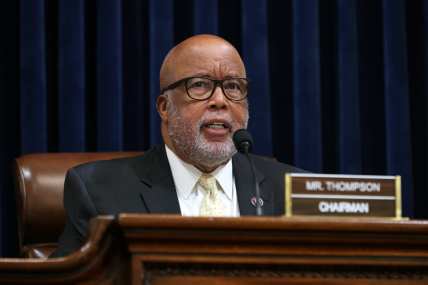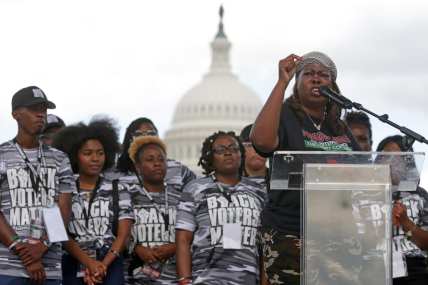Another big lie: Corporations broke their promise to stop political donations to the Sedition Caucus
OPINION: After the Jan. 6 Capitol attack, companies announced they would pause, end or re-evaluate giving money to politicians who voted against certifying the 2020 election. But an analysis by Citizens for Responsibility and Ethics in Washington found that many of them are still funding the insurrectionists in Congress
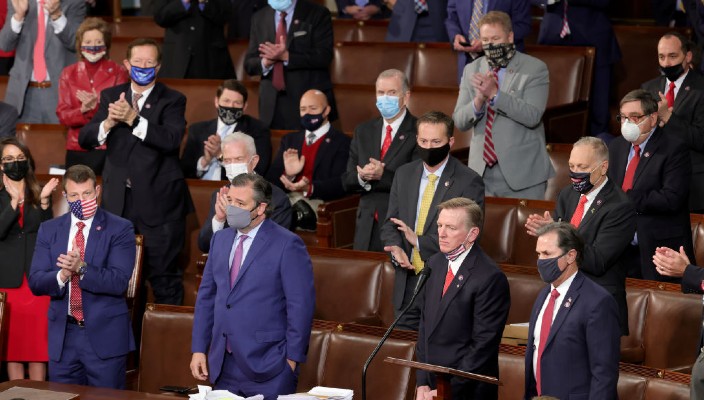
In the wake of the murders of George Floyd and other Black Americans at the hands of police officers and vigilantes in 2020, many corporate leaders finally began to speak out against systemic racism within their industries and the nation.
While the spring of 2020 saw Fortune 500 CEOs issue missives decrying racism, launch diversity and inclusion initiatives, and donate millions to social justice causes, some wondered if these actions were more marketing than genuine efforts to change corporate culture. Corporate institutions’ continued support of elected officials who undermined democracy and voting access for communities of color before and after the January 6, 2021 insurrection suggests that critics were right to be wary.
The Jan. 6 attack was not just an assault on American democracy, but also an assertion of white supremacy. A crowd of overwhelmingly white insurrectionists stormed the Capitol brandishing weapons and Confederate flags in an effort focused on invalidating the votes of millions of Americans in communities with large Black and brown populations in several battleground states. Weeks before the siege, Texas Attorney General Ken Paxton led a lawsuit with other Republican state attorneys general to target these same voters. In the hours after the insurrection attempt, 147 members of Congress, now known as the Sedition Caucus, voted against certifying the election results, citing the same “Big Lie” that led to the attack. History teaches that coup attempts can be violent and non-violent. One year ago, the United States survived a violent coup attempt by armed insurrectionists outside of the Capitol and a bloodless coup attempt by 147 legislators who worked inside the Capitol.
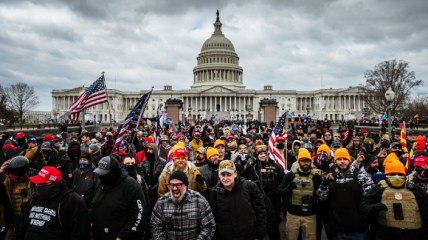
In this country, mobs rule
Amidst public outrage regarding the Capitol insurrection, top corporations and industry groups announced they would pause, end, or re-evaluate their political donations to the politicians who voted against certifying the election. Many of those commitments proved to be short-lived. An analysis by Citizens for Responsibility and Ethics in Washington (CREW) found that since the insurrection, companies that made these pledges have contributed a total of $4,785,000 to support members of the Sedition Caucus. This figure includes nearly $2,381,250 donated directly to members’ campaigns and leadership PACs.
Government contractors like Boeing ($346,500) and Lockheed Martin ($308,000), for example, were among the top corporate donors to reverse course and resume funding the Sedition Caucus. In addition, 20 companies, including Boeing, Walmart, and Home Depot, have donated $60,200 to 12 of the attorneys general whose lawsuit sought to overturn the election results. In the weeks following Jan. 6, as state legislatures introduced measures to restrict voting access that disproportionately impacted voters in communities of color and the Sedition Caucus opposed protecting voting access in Congress, corporate donations to these politicians continued to flow.
While there are many examples of these dubious corporate flip flops, corporate giants General Motors (GM) and Johnson & Johnson (J&J) provide case studies in this dissonance. In a message to employees addressing the killings of George Floyd, Ahmaud Arbery and Breonna Taylor, GM CEO Mary Barra said in part: “We stand up against injustice – that means taking the risk of expressing an unpopular or polarizing point of view, because complacency and complicity sit in the shadow of silence.” GM designated $10 million to support organizations that promote racial justice. In 2020, Johnson & Johnson CEO Alex Gorsky affirmed the company’s “commitment to justice and equality” and pledged “$10 million to fighting racism and injustice in America.” Following the Capitol insurrection, both GM and J&J paused all political contributions, and in April, they joined other major companies in a two-page ad in the New York Times to implore elected leaders to “stand for democracy” and “ensure the right to vote.” Both companies also resumed political giving to support the Sedition Caucus in April.
Even as companies have pledged millions to fight racism, the impact of their financial support to the Sedition Caucus cannot be underestimated. These political donations, regardless of their size, lend mainstream credibility to elected officials who have and continue to promote the extreme, disproven view that the 2020 election was stolen from Donald Trump. They promote the normalization of voter suppression and discrimination. Donations, like these, made in a non-election year contribute to the advantages of incumbency that can scare away primary and general election challengers, potentially denying voters the option to choose leaders who actually support democracy. As we have witnessed, one or two votes in Congress can make the difference on key issues, including whether Americans have access to affordable healthcare or a functional democracy.
As the national conversation on systemic racism in 2020 gives way to an inevitable backlash, corporate America’s backslide was also predictable. Still, the quick reversal of many companies following their rhetoric on racial justice prior to and after the Jan. 6, 2021 insurrection forces us to re-evaluate their commitment and question what political advantage they sought by wagering their “values.” Once the calendar passes from Jan. 6 and moves closer to our annual celebration of Martin Luther King Jr. Day, we will likely see another round of platitudes and financial commitments to racial justice. One can only hope that corporate leaders will heed the lesser-known words of Dr. King that “the ultimate measure of a man is not where he stands in moments of comfort and convenience, but where he stands at times of challenge and controversy,” and end their support for elected officials who exacerbate systemic racism and undermine democracy.
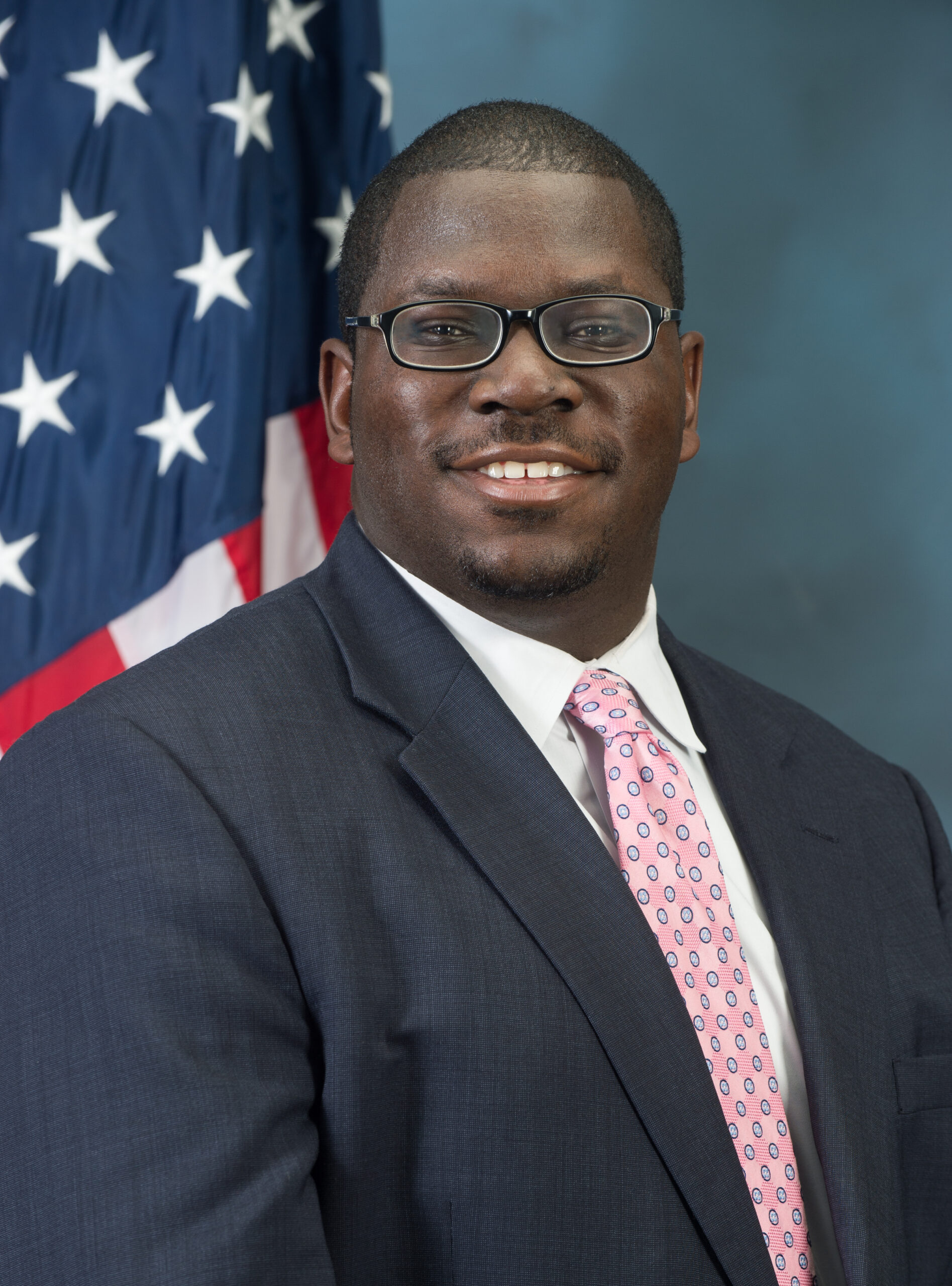
Donald K. Sherman serves as CREW’s Vice President and Chief Counsel. Prior to joining CREW, Sherman served in various roles in the House, Senate, and the Executive Branch, including as Special Assistant to the President for Racial and Economic Justice in the Biden White House and Chief Oversight Counsel to the late Rep. Elijah Cummings, on the House Committee on Oversight and Government Reform. For him on Twitter: @donaldonethics.
Have you subscribed to theGrio podcasts “Dear Culture” or “Acting Up?” Download our newest episodes now!
TheGrio is now on Apple TV, Amazon Fire and Roku. Download theGrio.com today!
